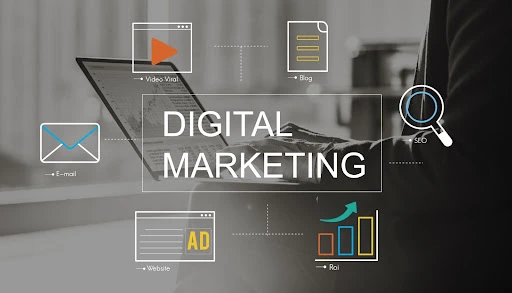The Importance of Digital Marketing Segmentation: Why it Matters and How to Do it Right

Whether you are a small, growing business or a well-established brand, digital marketing is something that you just cannot ignore. Not only do you need to make sure that you have a digital marketing strategy, but you must also ensure that you are doing everything right! Yes, we know it can get tricky, especially with so many different marketing channels available. There is no need to worry though, because this is where digital marketing segmentation will come to save you like a knight in shining armour.
Now, let’s get talking about what digital marketing segmentation really is. To put it briefly, it is the process of dividing your target audience into smaller groups based on specific criteria, such as demographics, behavior, or location. Once you do that, you can create targeted campaigns that are more relevant to each group, leading to higher engagement and conversions. Now, let us explore the importance of digital marketing segmentation and how you can do it right for your brand.
Why Does Digital Marketing Segmentation Matter?
Relevance
One of the most significant benefits of segmentation is that it allows you to create more relevant campaigns for your target audience. By targeting specific groups based on their characteristics or behavior, you can tailor your messaging, offers, and creative to their specific needs and preferences. This leads to higher engagement rates, as your audience is more likely to pay attention to something that speaks directly to them.
Cost-effectiveness
Another advantage of segmentation is that it can help you save money on your marketing campaigns. By targeting specific groups, you can avoid wasting resources on people who are unlikely to be interested in your products or services. This can lead to a higher return on investment (ROI) for your marketing efforts.
Increased Conversions
Segmentation can also help you increase your conversion rates. By creating campaigns that are more relevant to your target audience, you can create a stronger connection with them and increase the likelihood that they will take action. This can lead to more conversions, whether that’s signing up for a newsletter, making a purchase, or taking another desired action.
How Can You Do Digital Marketing Segmentation Right
Define Your Segments
The first step in digital marketing segmentation is to define your segments. This involves identifying the different groups within your target audience based on specific criteria. For example, you may want to segment your audience by age, gender, location, or interests. The key is choosing criteria relevant to your business and will help you create more targeted campaigns.
Collect Data
Once you’ve defined your segments, the next step is to collect data on your audience. This can involve using tools like Google Analytics, social media insights, or customer surveys. The goal is to gather as much information as possible on each segment, including their behavior, preferences, and needs.
Create Targeted Campaigns
With your segments defined and data collected, you can start creating targeted campaigns for each group. This involves tailoring your messaging, offers, and creative to the specific needs and preferences of each segment. For example, you may create different ad campaigns for each segment, with messaging and offers that are tailored to their unique characteristics.
Test and Refine
As with any marketing strategy, it’s important to test and refine your segmentation efforts over time. This involves analyzing your campaign results and making adjustments as needed. For example, you may find that one segment responds better to a certain type of messaging or offer than another. By continually testing and refining your campaigns, you can optimize your results over time.
Digital marketing segmentation is a crucial strategy for businesses looking to create more targeted and effective marketing campaigns. By dividing your target audience into smaller groups based on specific criteria, you can create more relevant campaigns that resonate with each group. This can lead to higher engagement, lower costs, and increased conversions. To do segmentation right, it’s important to define your segments, collect data, create targeted campaigns, and continually test and refine your efforts over time. By following these best practices, businesses can maximize the impact of their digital marketing efforts and achieve their goals.
FAQs
Ans: Digital marketing segmentation divides a target market into distinct groups based on shared characteristics, such as demographics, behaviors, or preferences. It allows digital marketers to tailor their strategies, messages, and offerings to specific segments, improving relevancy and effectiveness.
Ans: Digital marketing segmentation is crucial as it allows businesses to target specific customer groups effectively, increasing the likelihood of conversion. It enables tailored marketing campaigns, resulting in higher engagement and customer satisfaction. It also helps allocate resources efficiently, ensuring maximum return on investment. This segmentation process helps marketers connect with their audience at a deeper level, driving engagement, and long-term customer satisfaction.
Ans: Digital marketing segmentation can benefit your business by enabling targeted and personalized marketing campaigns. You can customize your marketing messages to resonate with each segment. It helps increase engagement, conversion rates, and customer satisfaction, enhancing your business’s overall marketing effectiveness and boosting ROI.
Ans: There are four common segmentation methods used in digital marketing – demographic (age, gender, location), psychographic (interests, values), behavioral (purchase history, website interactions), and firmographic (company size, industry). Each type allows marketers to tailor their strategies and messages, optimizing campaigns for maximum relevance and effectiveness.
Ans: Your business needs digital marketing segmentation if your marketing efforts lack personalization and struggle to reach your target audience online. Also, you need it if your conversion rates are low and customer engagement is minimal.
Ans: Yes, digital marketing segmentation can help you reach a specific target audience. By dividing your audience into segments based on demographics, interests, or behavior, you can tailor your marketing efforts to their needs and preferences. It allows for more personalized and relevant messaging, increasing the chances of engagement and conversion.
Ans: When implementing digital marketing segmentation, key factors to consider include target audience analysis, data collection, segmentation criteria, customer personas, communication channels, personalization, automation tools, and analytics. Understand your audience’s demographics, interests, and behaviors and gather relevant data to inform your segmentation strategy.
Recent Posts
- Optimizing For Google AI Overviews: What Marketers Need To Know November 19, 2024
- Google’s Latest Shake-up: November 2024 Core Update November 13, 2024
- SEO Ranking Explained: Proven Techniques to Enhance Your Website’s Traffic October 22, 2024
- The Importance of Mobile SEO Optimization: A Guide to Staying Competitive October 16, 2024
- What is Evergreen Content? Build Traffic That Never Fades October 15, 2024
- The Role of Technical SEO Elements in Enhancing Site Performance and Rankings October 10, 2024
- Customer Acquisition 101: Building a Loyal Client Base October 10, 2024
- How User Experience Directly Impacts SEO Rankings: Key Factors to Consider October 8, 2024
- Core Web Vitals and SEO: How to Optimize for a Faster Website? October 3, 2024
- What is Schema Markup? Strategies to Use it for Better SEO Performance September 16, 2024
Get
in Touch
Contact AdLift for a 360-degree marketing plan


